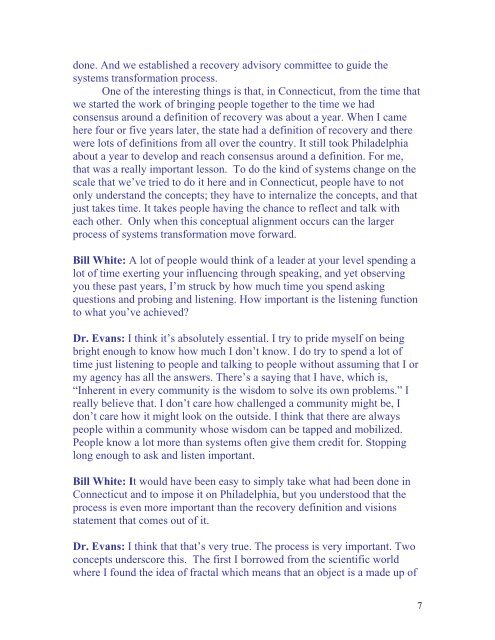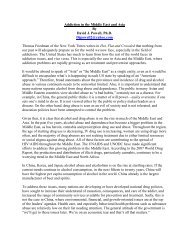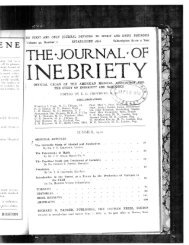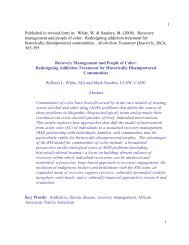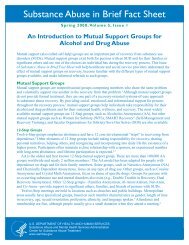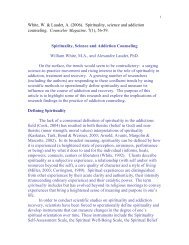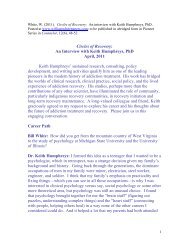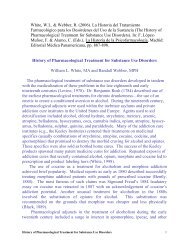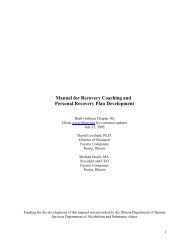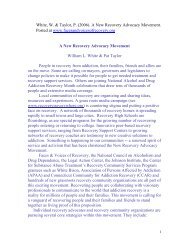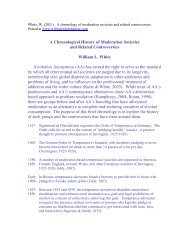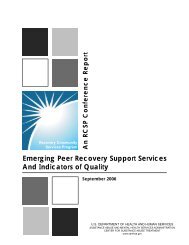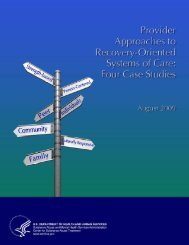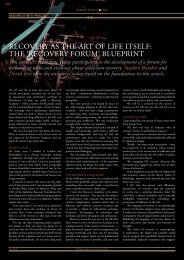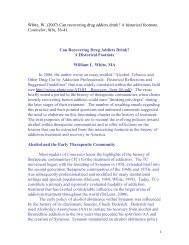An Interview with Arthur C. Evans, Jr., PhD Dr. Arthu - William L. White
An Interview with Arthur C. Evans, Jr., PhD Dr. Arthu - William L. White
An Interview with Arthur C. Evans, Jr., PhD Dr. Arthu - William L. White
- No tags were found...
Create successful ePaper yourself
Turn your PDF publications into a flip-book with our unique Google optimized e-Paper software.
done. <strong>An</strong>d we established a recovery advisory committee to guide thesystems transformation process.One of the interesting things is that, in Connecticut, from the time thatwe started the work of bringing people together to the time we hadconsensus around a definition of recovery was about a year. When I camehere four or five years later, the state had a definition of recovery and therewere lots of definitions from all over the country. It still took Philadelphiaabout a year to develop and reach consensus around a definition. For me,that was a really important lesson. To do the kind of systems change on thescale that we’ve tried to do it here and in Connecticut, people have to notonly understand the concepts; they have to internalize the concepts, and thatjust takes time. It takes people having the chance to reflect and talk <strong>with</strong>each other. Only when this conceptual alignment occurs can the largerprocess of systems transformation move forward.Bill <strong>White</strong>: A lot of people would think of a leader at your level spending alot of time exerting your influencing through speaking, and yet observingyou these past years, I’m struck by how much time you spend askingquestions and probing and listening. How important is the listening functionto what you’ve achieved?<strong>Dr</strong>. <strong>Evans</strong>: I think it’s absolutely essential. I try to pride myself on beingbright enough to know how much I don’t know. I do try to spend a lot oftime just listening to people and talking to people <strong>with</strong>out assuming that I ormy agency has all the answers. There’s a saying that I have, which is,“Inherent in every community is the wisdom to solve its own problems.” Ireally believe that. I don’t care how challenged a community might be, Idon’t care how it might look on the outside. I think that there are alwayspeople <strong>with</strong>in a community whose wisdom can be tapped and mobilized.People know a lot more than systems often give them credit for. Stoppinglong enough to ask and listen important.Bill <strong>White</strong>: It would have been easy to simply take what had been done inConnecticut and to impose it on Philadelphia, but you understood that theprocess is even more important than the recovery definition and visionsstatement that comes out of it.<strong>Dr</strong>. <strong>Evans</strong>: I think that that’s very true. The process is very important. Twoconcepts underscore this. The first I borrowed from the scientific worldwhere I found the idea of fractal which means that an object is a made up of7


